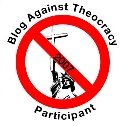Click Play to hear the actual radio show.
(Radio show comes courtesy of Old Time Radio and the Internet Archive.)
On October 30th, 1938, a small group of radio performers gave a performance that would, quite literally, shock the world.
To lead actor and star Orson Welles, the performance was nothing more than a cleaver Halloween stunt; to scare people on the radio in the same way that people scared themselves in front of the campfire for generations gone by.
The show certainly sounds innocent enough on the onset. Some timely music, reportedly coming from a hotel ballroom, and the occasional discussion about an otherwise innocent meteor strike. But then the story takes a more dramatic turn.
Unfortunately Welles did not take into consideration the fact that certain listeners would not be able to listen to the start of the program, which announced that the production was actually fictional. Even in those days audience members would engage in what we today refer as "channel jumping", where they would jump from one station to the next every time that station would go to break. So some listeners would go from Edgar Bergen and Charlie McCarthy to boxing to shocking news from Grover's Mill.
Before the show reached the halfway point, the panic was nationwide. People were fleeing their homes in New York, New Jersey, Ohio, and Illinois. Police stations from Boston to Los Angeles were flooded with calls from frantic listeners that believed that the world was in fact coming to an end. College students in North Carolina were frantically calling their parents, begging to come get them, fearing the worst. Even listeners in Canada were frantically calling CFRB in Toronto asking for more information.
Hospitals were filled with people who claimed to be overcome by smoke and stricken by fear. The electric company in Providence, Rhode Island, was besieged with callers demanding that they turn off all the electricity as a "defensive maneuver".
In the days that followed, the Federal Communications Commission, only five years old, summoned the leaders of the broadcast companies to Washington to discuss remedies to prevent future hysterical outbursts. One suggestion commonly expressed was the outright prohibition of the use of the words "flash" and "bulletin" for any broadcast other than legitimate news stories. This would be the second time such speech was censored by the FCC, the first being made upon the formation of the FCC back in 1933 when they were ordered by Congress to prohibit any kind of message supporting socialism, Communism, or Nazism.
Still more draconian methods were proposed by members of Congress in the wake of this broadcast. One such measure insisted by Senator Clyde Herring (Democrat) of Iowa would require that the FCC review EVERY broadcast before it could be aired. Fortunately, the Senator's blatant bowdlerization plan failed to gain traction.
Regretfully, even H.G. Wells, who wrote the original story, was outraged at the hysteria, but was even more outraged at Orson Welles making changes to his legendary story and thus demanded that the Columbia Broadcasting Station issue an immediate retraction.
The Columbia Broadcasting Station apologized profusely to the hysteria that was inadvertently caused by the late-coming listeners and vowed that the show would NEVER BE AIRED AGAIN!
Of course, it has been rebroadcast since then... and remade and paid homage to numerous times, and even today, on the 70th anniversary of the original broadcast, it is available for people to listen to at their leisure.
A few things that should be mentioned...
- If the "artillery cannons" sounded like a toilet flushing, that's because it was. Some very creative people strung a microphone cable to the men's room for some of the sound effects.
- The "Secretary of the Interior" was originally supposed to be the President, but radio officials balked at the idea and ordered it be changed, even though many panic-stricken listeners were convinced it really was President Roosevelt.
- Orson Welles supposedly played a recording on the reporter's account of the 1937 Hindenburg disaster to demonstrate the kind of tone the fictional radio announcer should take during the performance.
- In the original story by H.G. Wells, the story takes place in his home country of England. Orson Welles believed that the story needed to be moved to New Jersey so it would appeal to the American listeners. (This was part of Wells' complaint about the radio show.)
- The Columbia Broadcasting Station, the syndicated radio system, is best known today as the TV network CBS.
- The radio station where the Mercury Theater on the Air made the broadcast was WABC in New York. WABC would later change their call letters to WCBS, and a new WABC would be created in 1953 which would become the flagship to the American Broadcasting Company, which many of you would recognize today as the TV network ABC. WCBS would later become instrumental in the fight against McCarthyism, and the plight of one of their popular radio personalities would inspire Edward R. Murrow to take on the politically powerful Senator Joe McCarthy.
- Finally, the speech that Orson Welles made at the very end of the broadcast was completely ad-libbed and done at the behest of radio officials because, up until that point, they had absolutely no idea of the kind of hysteria that was going on outside of the WABC building. Welles and the rest of the performers were taken completely by surprise as to what happened.
I hope you enjoy the rebroadcast of the War of the Worlds on it's 70th Anniversary, and be sure to come back to the blog site tomorrow for a rare link to the Brutally Honest show that was inspired by it.
(Historical information provided by Wikipedia and www.waroftheworlds.org)







1 comment:
The power of the radio was shown that day!
Post a Comment